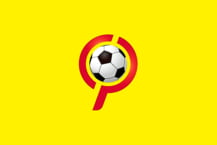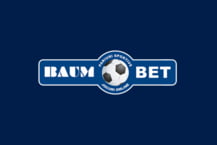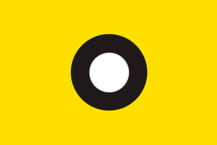Gambling in Romania can be traced back to 1906, when the Loteria Romana was established. Under the communist rule, gambling, except the National Lottery, was prohibited on the territory of the country. The ban was lifted in the 1990s, when all physical gambling activities were made legal. The first casino was opened in 1991. However, Romania was rather slow to legalize online gambling which was technically neither legal nor illegal because no legislation existed. In 2010, the Romanian government made online gambling legal, but no regulatory body existed to grant online licenses. The government created the National Gambling Office to oversee the country’s gambling industry in 2013. According to the official statistics, gambling taxes contributed almost RON 1.5 billion (EUR 317 million) to the state budget in 2018.
The legal gambling age in Romania is 18. Gambling operators are forbidden to allow access to anyone who does not have valid identification documents. Advertising of gambling services is permitted, but promotional materials cannot be placed near schools, educational centers, cultural establishments, religious centers, and they must contain the message that minors are forbidden to participate in gambling. Gambling operators are also allowed to advertise the gambling activities that are organized within their premises.
Laws and Regulators
The Games of Chance Law (Government Emergency Ordinance 77/2009) on the organization and operation of games of chance regulates both land-based and online gambling activities in Romania. In addition, gambling activities are also regulated by various governmental decrees and instructions, orders, and decisions issued by the National Gambling Office.
The National Gambling Office regulates the gambling market in Romania Under Article 1 of the Games of Chance Law, the State has a monopoly over the organization and operation of gambling activities in Romania, and the National Gambling Office is empowered to oversee how the monopoly is handled. The National Gambling Office is responsible for supervising gambling activities, granting the right to organize and operate gambling, and issuing administrative acts related to gambling.
Land Based Casinos
Most licensed casinos are located in the region of Bucharest. Operators that are licensed to operate land-based casino activities can also organize poker festivals. Currently, four casino licenses are issued. One license is granted for a temporary casino. Gambling operators cannot use the word ‘casino’ or its derivatives if the gambling premise does not have a casino license.
Over ten casinos operate in Romania now. Under the existing legislation, a casino may be placed only in hotels with a minimum three stars ranking or business residences. Romanian casinos offer traditional table games, various slots and VLTs. They are usually well-equipped, create a charming atmosphere, and have friendly staff. Entering a casino is subject to an entrance fee. The amount established by the legislation is RON 50 (about EUR 10).
The number of casinos in Romania has recently reduced. Several casinos declared bankruptcy in the last few years. The cost of the licensing and authorization fees for a casino operator are higher than for all other categories of gambling. According to the existing gambling regulations, slot-machines fall under a different type of license, the costs of which are significantly lower. It resulted in the hundreds of gambling operators currently holding the slot-machine licenses. Now, numerous slot machine clubs across Romania offer one of the most attractive products, slot machines, which is generally present in casinos, thus competing with the casino business.
Online Gambling
Romania legalized online gambling activities in 2010. The National Gambling Office issued its first online gambling licenses in 2015 and immediately published a blacklist of the sites that violate the country's online gambling regulations.
To prevent gambling addiction, warning about the potential threats a player can experience if they engage in gambling activities for a long time is displayed. A clock, enabling the player to keep track of the duration of their gambling session, is also displayed on every gambling website. Every player who engages in gambling activities more than once in 12 hours is notified via email about the potential risks they are exposed to.
Under the Games of Chance Law, three categories of licenses are granted:
1.Class 1 license (to the operators that provide games of chance in online variant, but the presence of contracts with players is obligatory);
2.Class 2 license (to the companies that provide both traditional and online gambling options or specialize in providing gambling software, their affiliates and testing labs);
3.Class 3 license (to the providers of lottery games).
A Class 1 license is granted for the entire activity conducted on the same gambling platform. The online casino license includes online poker and online slot machine gambling, so any operator licensed and authorized to provide online casino games can also offer poker products and online slots on its Romania-designed platform. Bingo or keno games are a distinct category of online gambling. B2B providers (manufactures, producers, and distributors of gaming equipment, platform hosting providers, and gambling software developers) must obtain a Class 2 license. The National Gambling Office does not grant licenses or authorizations to the operators that appear on the blacklist of unlicensed gambling websites.
The law puts mobile and interactive gambling on TV under the category of online gambling. Gambling law forbids the organization of games/contests with any type of winnings through telephone, TV, or radio, when winnings are granted based on answers to questions (in case a participation fee is paid).
According to the official data, regulated online gambling market generated EUR 206.6 million in 2018.
































